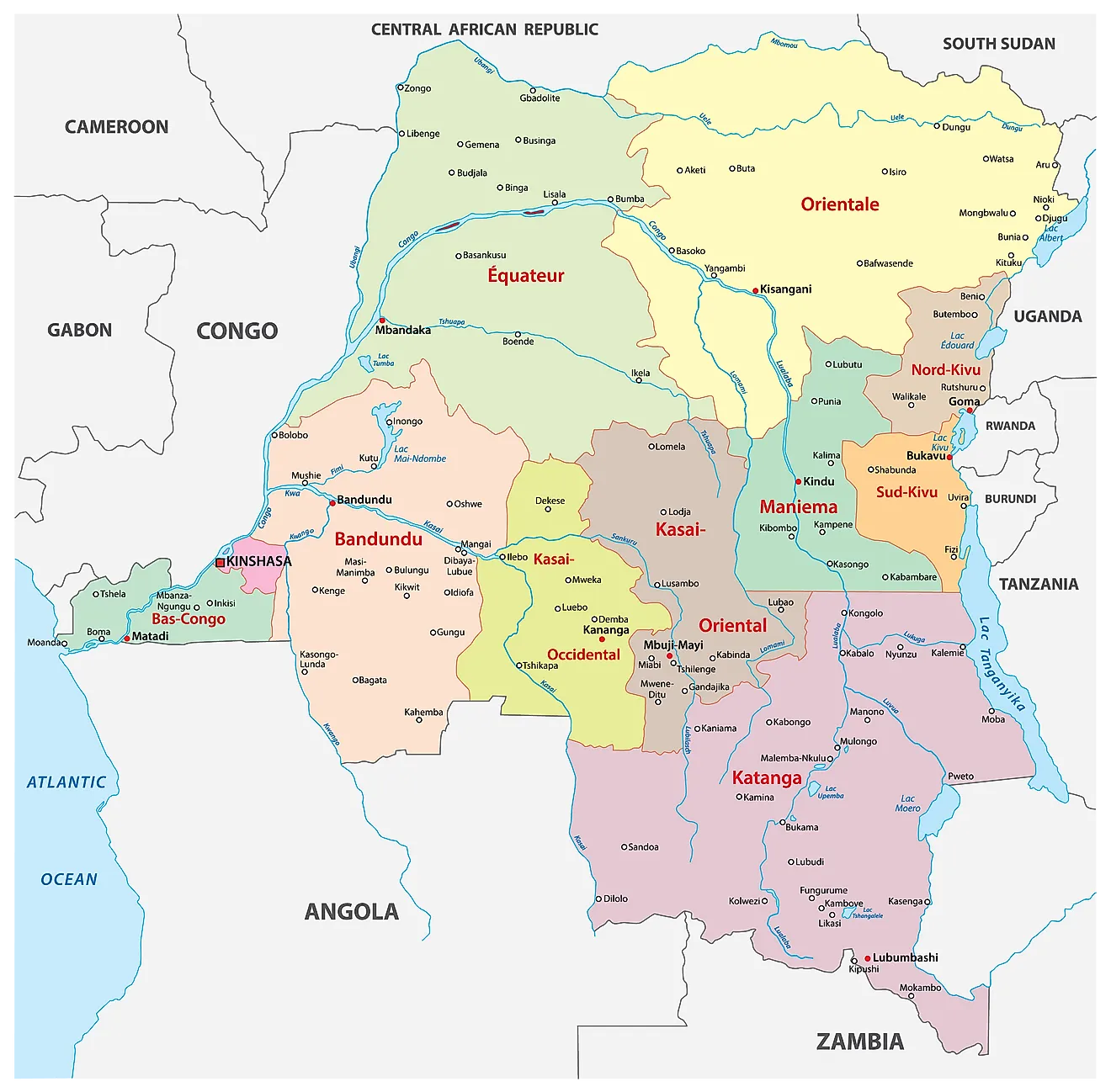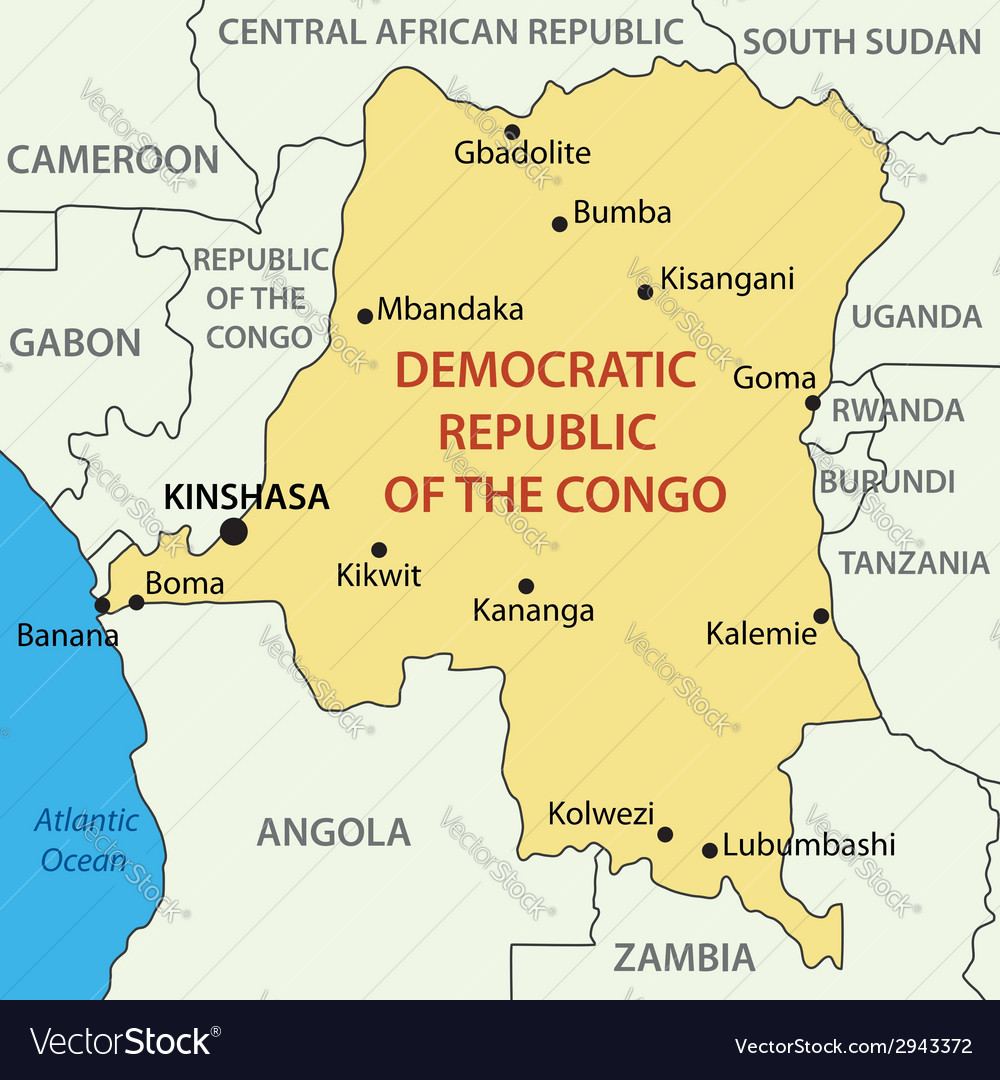Is the Democratic Republic of Congo (DRC) a nation perpetually defined by its past, or is there a path toward a more stable and prosperous future? The DRC, a country of immense potential and profound challenges, is grappling with a complex history, a wealth of resources, and ongoing conflict, making it a critical case study in the complexities of post-colonial Africa.
The DRC, situated in the heart of Africa, presents a fascinating study in contrasts. Its vastness, second only to Algeria in the continent, belies a history shaped by both immense wealth and devastating exploitation. The country's story is one of transformation, from a pre-colonial era marked by diverse cultures and kingdoms to a period of brutal colonial rule under King Leopold II of Belgium, followed by decades of struggle for independence and, ultimately, a deeply troubled post-colonial period.
| Key Facts: Democratic Republic of the Congo | |
|---|---|
| Official Name: | Democratic Republic of the Congo (Rpublique Dmocratique du Congo) |
| Capital: | Kinshasa |
| Area: | 2,345,410 square kilometers (905,567 sq mi) |
| Population (2023 est.): | Approximately 102 million |
| Official Language: | French |
| Other Widely Spoken Languages: | Lingala, Swahili, Kikongo, Tshiluba |
| Currency: | Congolese Franc (CDF) |
| Major Religions: | Christianity (Catholicism, Protestantism), Islam, Indigenous beliefs |
| Government: | Semi-Presidential Republic |
| Independence: | June 30, 1960 (from Belgium) |
| Main Economic Activities: | Mining (copper, cobalt, diamonds, gold, etc.), agriculture, forestry |
| Major Exports: | Copper, cobalt, crude petroleum, diamonds, coffee |
| Bordering Countries: | Central African Republic, South Sudan, Uganda, Rwanda, Burundi, Tanzania, Zambia, Angola, Republic of the Congo |
| Reference: | The World Factbook - Democratic Republic of the Congo |
The pre-colonial period of the Congo was marked by a diverse array of kingdoms and societies. The Kongo Kingdom, for example, exerted considerable influence in the west. Further inland, various other groups, including the Luba and Lunda, developed complex political and social structures. These societies, while diverse, shared a connection to the land and a system of trade that would be dramatically altered by the arrival of Europeans.
- Louis Gossett Net Worth A Deep Dive Into The Life And Wealth Of A Hollywood Legend
- Tj Ford Net Worth Exploring The Life And Legacy Of The Basketball Star
The arrival of Europeans in the 19th century, particularly under the auspices of King Leopold II of Belgium, ushered in a dark chapter. The Congo Free State, as it was initially called, became a personal domain of the King. Leopolds brutal exploitation of the regions resources, particularly rubber, led to widespread atrocities, forced labor, and a devastating decline in the population. The paternalistic tendencies of Belgian colonial rule, even after the Congo Free State transitioned into a Belgian colony, continued to treat Congolese as children and maintained strict political control, leaving lasting scars on the Congolese psyche.
The abundance of minerals in Katanga province, including copper, cobalt, zinc, and cassiterite, the chief source of tin, played a significant role in attracting European powers to the region. This resource-driven interest fueled the exploitation and the ongoing conflict that has plagued the country.
Independence, achieved on June 30, 1960, was quickly followed by a period of instability and civil war. The country was renamed the Democratic Republic of the Congo. Following Mobutus departure, Kabila assumed the presidency and restored the countrys previous name, the Democratic Republic of the Congo. Kabila initially attracted foreign aid and provided some order and relief to the countrys decimated economy. He also initiated the drafting of a new constitution. However, the country remained mired in conflict. Kabila's unstable government came into conflict with his allies, setting the stage for a renewed civil war. The instability, fueled by power struggles and ethnic tensions, continued to hinder the nations progress.
- Katharine Hepburn Net Worth At Death A Life Of Legacy And Wealth
- Trina Net Worth 2024 A Deep Dive Into The Rappers Wealth And Success
The Congo River, flowing through the heart of the country, is a vital resource and a defining geographical feature. The Congo River also forms a natural border. Kinshasa, the capital city, is situated along its banks. The river provided a crucial transportation artery, but also a point of vulnerability in times of conflict. The country also shares borders with several nations, including the Central African Republic, South Sudan, Uganda, Rwanda, Burundi, Zambia, Angola, and the Republic of the Congo.
The country's wealth in natural resources, however, stands in stark contrast to the widespread poverty that afflicts a majority of its population. Despite its enormous potential, the DRC ranks among the worlds poorest countries. The legacy of colonialism, coupled with decades of conflict and corruption, has hindered development and limited access to basic services for many Congolese.
The ongoing conflict in the eastern part of the country, with armed groups in North and South Kivu, Orientale provinces, and other regions, continues to destabilize the nation. Armed groups are known to pillage, steal cars, take hostages, and carry out acts of violence. The M23 rebel group, backed by external forces, has contributed to the recent surge in violence. This recent outbreak of fighting underscores the enduring challenges to peace and security in the DRC.
The DRC's complex colonial history has left a legacy of instability. The roots of todays violence can be traced back to old problems, including ethnic tensions, resource exploitation, and political power struggles. The country's evolution from a king's private domain to a Belgian colony to an independent nation has been a tumultuous one, marked by periods of civil war, conflict, and persistent instability.
The second largest country by area on the African continent is also the richest in mineral wealth. The country is often referred to as DRC or Congo, and formerly as Zaire. The name Congo (meaning hunter) comes from the Bakongo ethnic group that lives in the western part of the Congo River basin.
The DRCs government structure is a semi-presidential republic. The political landscape is complex, with a multi-party system and frequent elections, often marred by disputes and allegations of irregularities. Governance challenges include corruption, weak institutions, and a lack of accountability, which further exacerbate the existing issues. The Congolese government faces immense challenges. You may find the institutions, news, and public policies of the government and its decentralized entities at the official portal of the Democratic Republic of Congo: Bienvenue sur le portail officiel de la Rpublique Dmocratique du Congo.
The economy of the DRC is heavily reliant on its mineral wealth. Copper and cobalt are essential exports, but the country's economy is susceptible to fluctuations in global commodity prices. Diversifying the economy and fostering sustainable development are critical challenges for the future. Following the departure of Mobutu Sese Seko, the country experienced significant economic distress. Kabila's initial efforts to stabilize the economy, while important, were unable to address the deep-seated issues. The DRC continues to grapple with governance challenges, including corruption, weak institutions, and a lack of accountability.
The DRC is grappling with one of its worst crises in years. Due to the increased rate of civil unrest, we strongly recommend you to avoid any type of traveling to the Democratic Republic of Congo.
The south is least densely populated, despite a wealth of fertile soil, hydroelectric power potential, and mineral resources. This disparity highlights the need for balanced regional development and investment in infrastructure. The government faces the difficult task of balancing resource extraction with environmental preservation and sustainable development.
The DRC shares borders with several nations. The western tip of the country touches the Atlantic Ocean. The Congo River flows through the country and along its western border.
The DRCs history, geography, and political dynamics are inextricably linked to its economic realities. Its future hinges on addressing its internal conflicts and building a stable, inclusive society that can harness its vast potential. The DRC is a country of immense challenges, but also one of remarkable resilience and hope.



Detail Author:
- Name : Dr. Tiara Daugherty
- Username : tklocko
- Email : pouros.edyth@grimes.info
- Birthdate : 2007-04-03
- Address : 3867 Alyce Union Suite 685 North Marcia, CA 50209-6384
- Phone : +1.352.231.7930
- Company : Metz Inc
- Job : Actor
- Bio : Quia vitae quibusdam eaque eius. Recusandae nostrum iste officia incidunt qui iste nostrum. Laboriosam minima praesentium voluptas ex.
Socials
twitter:
- url : https://twitter.com/jenifer_lehner
- username : jenifer_lehner
- bio : Sit sed officia voluptate eius laboriosam. Tempora excepturi ad aut dolore quas ea sed. Distinctio omnis repudiandae ea blanditiis sequi maxime.
- followers : 2883
- following : 564
linkedin:
- url : https://linkedin.com/in/lehnerj
- username : lehnerj
- bio : Dicta nisi facilis nulla sit molestias ea ipsum.
- followers : 4710
- following : 1204
instagram:
- url : https://instagram.com/lehner2003
- username : lehner2003
- bio : Ullam corporis fuga beatae quam nisi eaque. Perspiciatis libero commodi illo totam nobis.
- followers : 594
- following : 1514